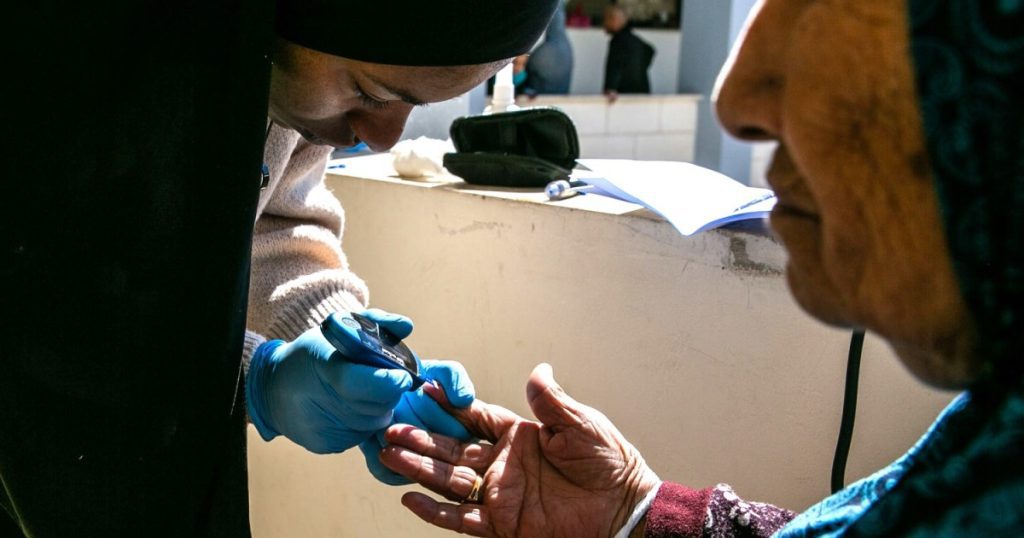Jenin and Tulkarem, Occupied West Bank – Omaima Faraj pauses for a moment, bowing her head in silence. Exhausted yet undeterred, her work continues.
She arrives at a school converted into a shelter near Tulkarem where her first patient, an elderly displaced woman, awaits her to check her glucose and blood pressure. After this, she moves to another classroom to see her next patient, walking down a passage illuminated by the late February sun.
At just 25, Faraj has been volunteering to assist those affected by the Israeli raids for several weeks. She represents a group of young Palestinians dedicated to addressing the crisis brought on by Israel’s actions throughout the occupied West Bank, as it conducts raids on refugee camps displacing thousands.
Rushing into Danger
Following the onset of what Israel refers to as operation “Iron Wall” on January 21, which involved military occupation and the displacement of the camp, Faraj chose to enter the camp rather than flee from the violence.
She, along with fellow volunteers, remained in the camp for over 12 crucial days during which the attacks intensified, providing support to individuals seeking to escape. Their main objective was to deliver aid to the injured, elderly, and those with limited mobility, as access to hospitals was denied due to Israeli soldiers blocking their paths.
The volunteers faced harassment from Israeli soldiers, with Faraj recalling threatening incidents where they were told to leave or face gunfire. One particularly distressing event involved an elderly man trapped in his home for four days, whom they were finally able to reach with assistance from the International Committee of the Red Cross after Israeli soldiers initially obstructed access. When they found him, he was in urgent need, lacking basic necessities. Although they managed to evacuate him, they were met with threats upon their departure.
Backpack Medics
“We had no emergency plan for this,” states Alaa Srouji, director of the Al-Awda Center in Tulkarem. Training offered by the Al-Awda and Lajee Centers aims to equip volunteers to document the expulsions and conditions of the camps, ensuring they can assess the need for aid effectively.
A dedicated group of mostly female nurses and medics, numbering around 15, came together at the beginning of the Israeli raids to provide medical care and distribute essentials to those impacted. For nearly two months, these young volunteers have tirelessly filled the void left by Israel’s prohibition of the UN Palestinian refugee agency (UNRWA) in the occupied West Bank.
Without a central base, they rely solely on their backpacks filled with medical supplies and a resolve to serve. They visit various hastily established shelters or wherever displaced individuals have found refuge, providing not just medical and psychological support but also food, clothing, and other necessities to those who have lost everything.



